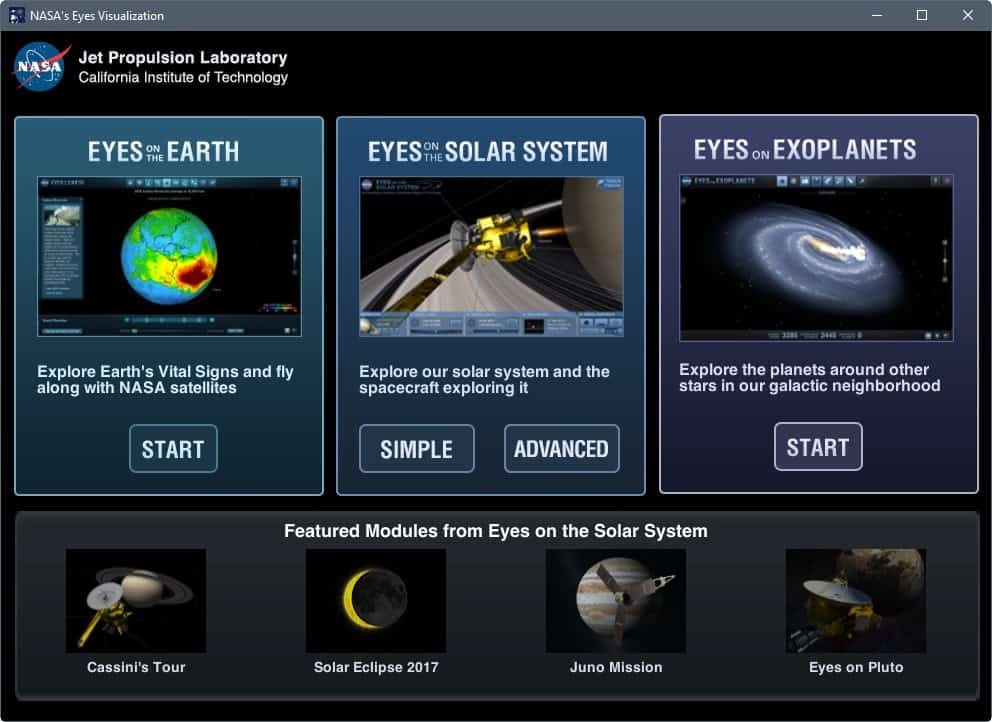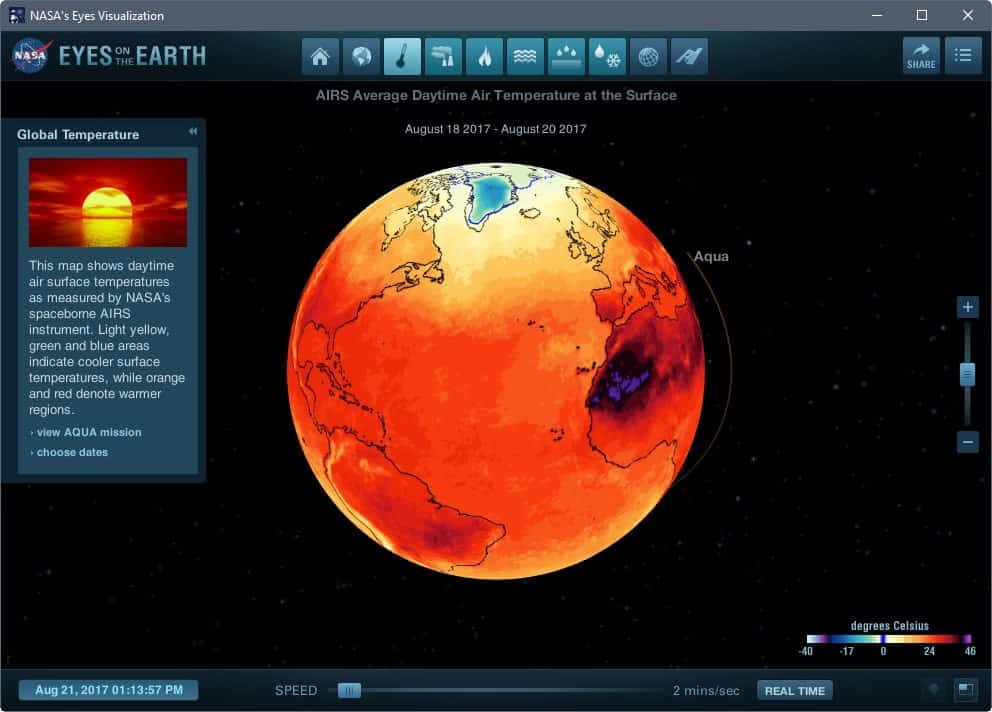Explore Space with NASA's Eyes

NASA's Eyes is a free software program and mobile application to explore earth, the solar system, the universe and spacecraft exploring them.
NASA's Jet Propulsion Laboratory at the California Institute of Technology created the application. Note that the app requires an active Internet connection as it retrieves data from NASA servers when you run it.
The Windows version of the application needs to be installed before it can be used. When you run it afterwards, three main starting points for your journey are displayed: Eyes on the earth, eyes on the solar system, and eyes on exoplanets.
The startpage displays featured modules, usually those with high relevance as well. Featured modules may include specific missions, e.g. Cassini's tour or Juno mission, but also events that can be experienced on earth such as the solar eclipse of 2017.
NASA's Eyes
The program connects to NASA servers on start to populate the featured modules, and will do so again when you select one of the options in the program interface.
Usually, what happens afterwards is that the visualization module gets loaded that provides you with visual information and options.
If you select to explore Earth for instance, you see a virtual representation of earth and some of the satellites that orbit earth. You may select a specific speed in which events happen, for instance real time or 10 minutes represented by one second.

The module displays latest events, e.g "record breaking smoke over Canada", and options at the top to visualize vital signs of the planet Earth. This displays information about the earth's temperature, sea level, water and ice, or carbon dioxide distribution.
You can zoom in and out, and display information about specific missions or satellites. The module features additional tools; the telescope mode lets you look into space from specific positions in the world. Missions lists all missions added to the module, and datasets additional visualization options, for instance about a gravity field map or global wind speed.
Modules differ depending on which you pick. If you pick the Cassini mission to Saturn module for instance, you get a different visualization.
You can follow the spacecraft's journey to Saturn, and get a lot of view options. There is a timeline with important points of the journey, options to jump to specific views, e.g. near Saturn, looking at Saturn or above Saturn, and information on the probe's distance to Earth, relative speed or distance to Saturn.
You may zoom in and out, and display information on the mission, Saturn and more. Last but not least, there is also an option to view Cassini images in the application.
Closing Words
NASA's Eyes is very powerful program that anyone who is at least mildly interested in space or Earth should at least take a look at. Since it pulls data from NASA servers, it comes with recent data on missions, and recent important events that you can take a look at.



























Remove the A and we have NSA’s eyes */*
Could be interesting for schools and to virtual some things.
All your telemetry belongs to planet pluto … oh wait Pluto isn’t a planet anymore! :D
Very nice suggestion, thanks Martin. I hope it doesn’t collect and send user telemetry data to space. :P
Ha. NASA sometimes has those things where you can give them your name and they will send it to Mars or beyond, and they already have me on the list. But I don’t think my browsing history would be of interest to anyone on Qo’noS (Klingon home planet). :-D